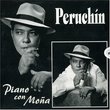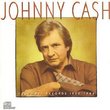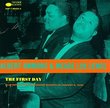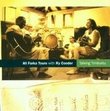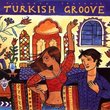| All Artists: Matthew Shipp, William Parker Title: Dna Members Wishing: 2 Total Copies: 0 Label: Thirsty Ear Original Release Date: 5/4/1999 Release Date: 5/4/1999 Genres: Jazz, Pop Style: Avant Garde & Free Jazz Number of Discs: 1 SwapaCD Credits: 1 UPC: 700435706729 |
Search - Matthew Shipp, William Parker :: Dna
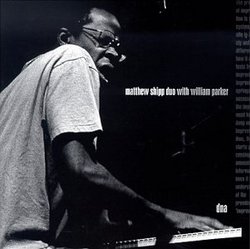 | Matthew Shipp, William Parker Dna Genres: Jazz, Pop
After 14 discs in less than a decade, pianist Matthew Shipp has announced a midcareer "retirement", claiming his "opus is complete." For fans of Shipp's dense, angular piano impressionism, DNA signals an artistic halt from... more » |
Larger Image |
CD DetailsSynopsis
Amazon.com After 14 discs in less than a decade, pianist Matthew Shipp has announced a midcareer "retirement", claiming his "opus is complete." For fans of Shipp's dense, angular piano impressionism, DNA signals an artistic halt from the pianist of the avant-garde. For his swan song, Shipp has chosen to record with his longtime collaborator, bassist William Parker, whose sympathetic playing has graced a number of Shipp's projects. On DNA Shipp vaults into the fray with an odd, strident rendition of "When Johnny Comes Marching Home." While Shipp plays the tune fairly straight, Parker saws away like mad, adding to the tune's schizophrenic feel. Even amid the most bombastic low-end fist-clusters, Shipp's playing has always maintained a rough undercurrent of the blues (seen here on "Cell Structure," and "Orbit") while also displaying a deep understanding of post-Schönberg classical piano. But aside from this deeply rooted and wide-ranging improvisational ingenuity, much of the joy in experiencing Shipp is (was?) the visceral pleasure of bearing witness to his string-busting intensity. Shipp loves to bang around on the deep, rumbly end of the piano ("Orbit" is played entirely with thundering exclamations), and he plays with astonishing force, sculpting a sonic landscape that's both sturdy and writ large. But instead of producing a thick, cumbersome musical flow, DNA excels at illustrating Shipp's lightning-quick thought process and the surprising agility and precision of his note pounding. All of these special talents converge on DNA, allowing brief lightning flashes of insight into Shipp's musical world that are equal parts revelation and astonishment. DNA closes as oddly as it starts, with Shipp playing a somber, straight version of "Amazing Grace." This time, Parker bows a reverent, swaying bass line, signaling, perhaps, the knowledge of what Shipp has helped continue, and also what he is putting aside. --S. Duda Similar CDsSimilarly Requested CDs
|
CD ReviewsThe MOST dynamic duo in Jazz today dork@sirius.com | 05/15/1999 (4 out of 5 stars) "Over the last decade Mathew Shipp has tirelessly produced a significant amount of work both in the recording studio and in live peformance. So much so that he has set himself apart as one of the more important improvisors on the scene, esspecially when one takes into account his role as an instrumentalist. When one undertakes to master the piano, there is a staggering ammount of history to assimilate and carry on one's shoulders. The modern piano keyboard has served as the periodic table for Western tonal theory for the last few hundred years so when one embarks to make music lacking Western conventionality, one might make it easier on one's self by choosing a more recent instrument like the saxophone. This does not mean to imply that people haven't succeeded in redefining the piano and how it is played. Such results were achieved by many jazz greats: Art Tatum, Thelonious Monk, Bud Powell, Bill Evans, Andrew Hill, Paul Bley... but the last person to pioneer the piano has been Cecil Taylor. Since the sixties Taylor has monopolized a great deal of what could, can and has been expressed on the piano in the context of improvisation. And everything that has come after him has always, perhaps out of necessity, resembled him. Mathew Shipp is an exception to this trend. Perhaps it is also out of necessity that Mr. Shipp is the first pianist of note to construct improvisations on the piano that do not detectably reference themselves to Taylor's aesthetic. On this release Shipp is joined by bassist, William Parker. (Incidentally enough, Parker served as the bassist of choice in many incarnations of the Cecil Taylor Unit over the course of several years.) Parker in recent years has made quite a name for himself as a composer, band leader, organizer and instrumental virtuoso of the highest calibre. It can be said that these two men go back. Both recorded as members of Roscoe Mitchell's Note Factory and served as half of David S. Ware's quartet. Parker has always been present in the various groups that Shipp has assembled and even recorded an album of duets previous to this date. ("Zo" Rise Records 126) The first track on DNA, "When Johnny Comes Marching Home" is a comparable demonstration of skill being that the selection is a traditional one and yet, in the hands of masters, can be negotiated in such a way that conjures a completely new face without sacrificing its recognizability. Five other dialogues commence afterwards. Shipp is agile without being anxious... subtle with contrast, authoritative with delivery... Parker's pizzacato is nimble. His arco penetrates all the appropriate spaces. His placement is deliberate and unselfconcious. The final piece closes this date with another traditional, "Amazing Grace" perhaps to show that the miraculously paradoxical first track was no accident. The music is overall frightening and beautiful, sudden and deliberate, accountable at all times. If this album is an argument, then it is defended formidably and well. If it is simply just a statement, then it is said with matchless elloquence and grace." Dense, profound, funny and brilliant Ian Muldoon | Coffs Harbour, NSW Australia | 02/04/2006 (5 out of 5 stars) "With stunning use of lower end of piano, with clusters of dark sounds, Mr Shipp I fel sure is also quoting one of the masters of that end, Lennie Tristano, in particular, TURKISH MAMBO on Genetic Alphabet. ORBIT also suggests Mr Tristano. The vocalising? by Mr Parker or is JUST arco bass, is eerie and effective. A brilliant program of music."
|

 Track Listings (7) - Disc #1
Track Listings (7) - Disc #1